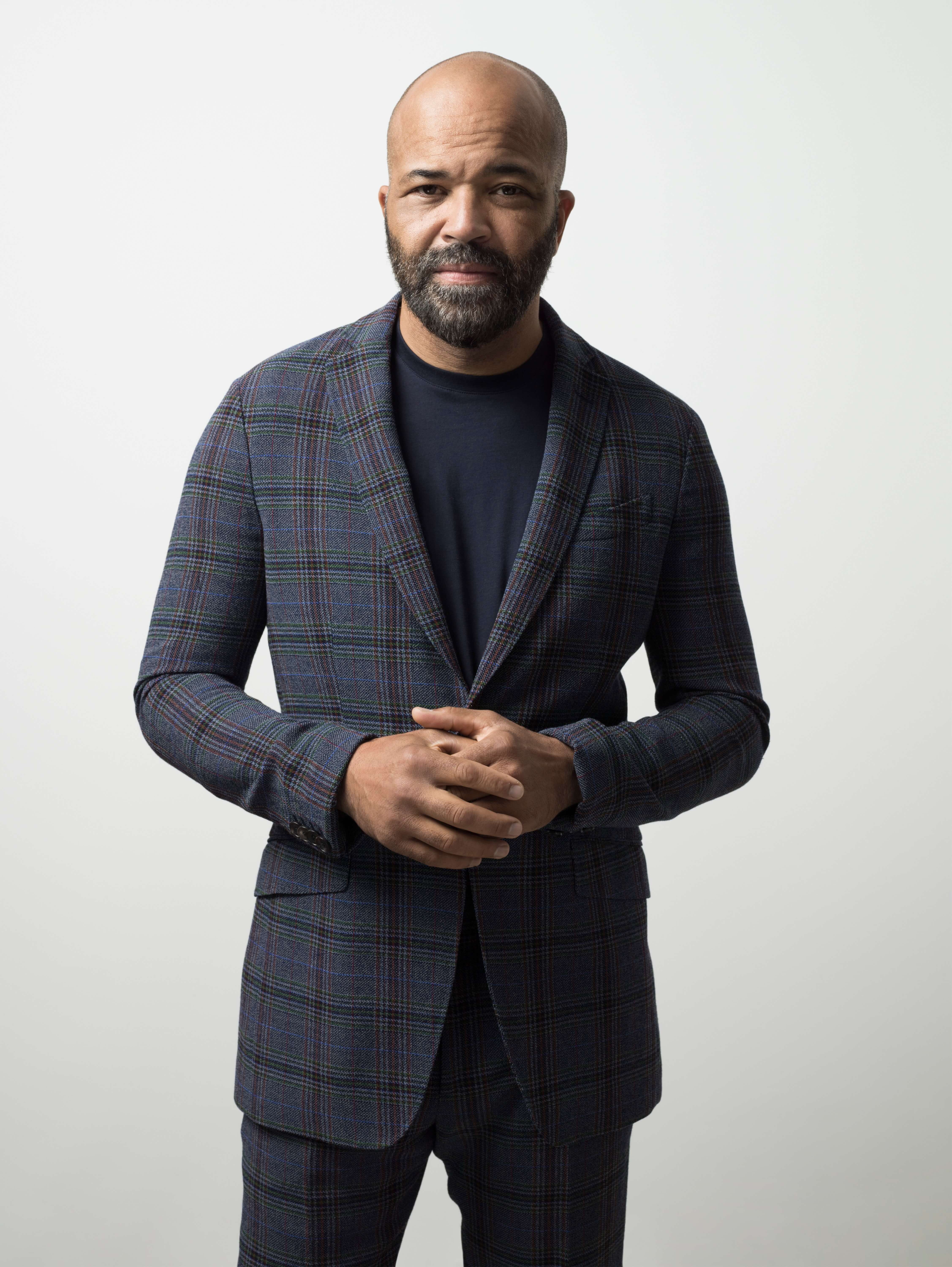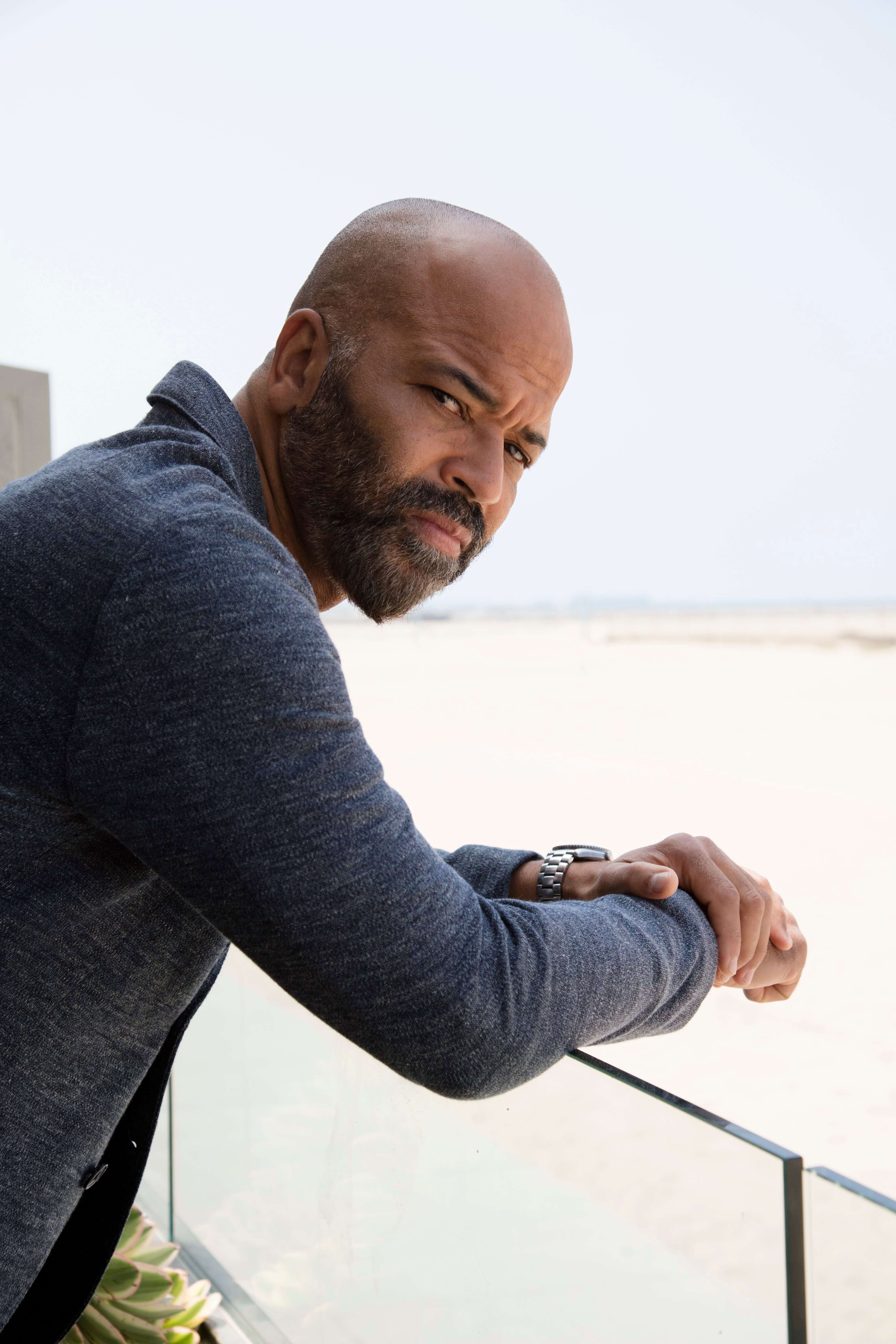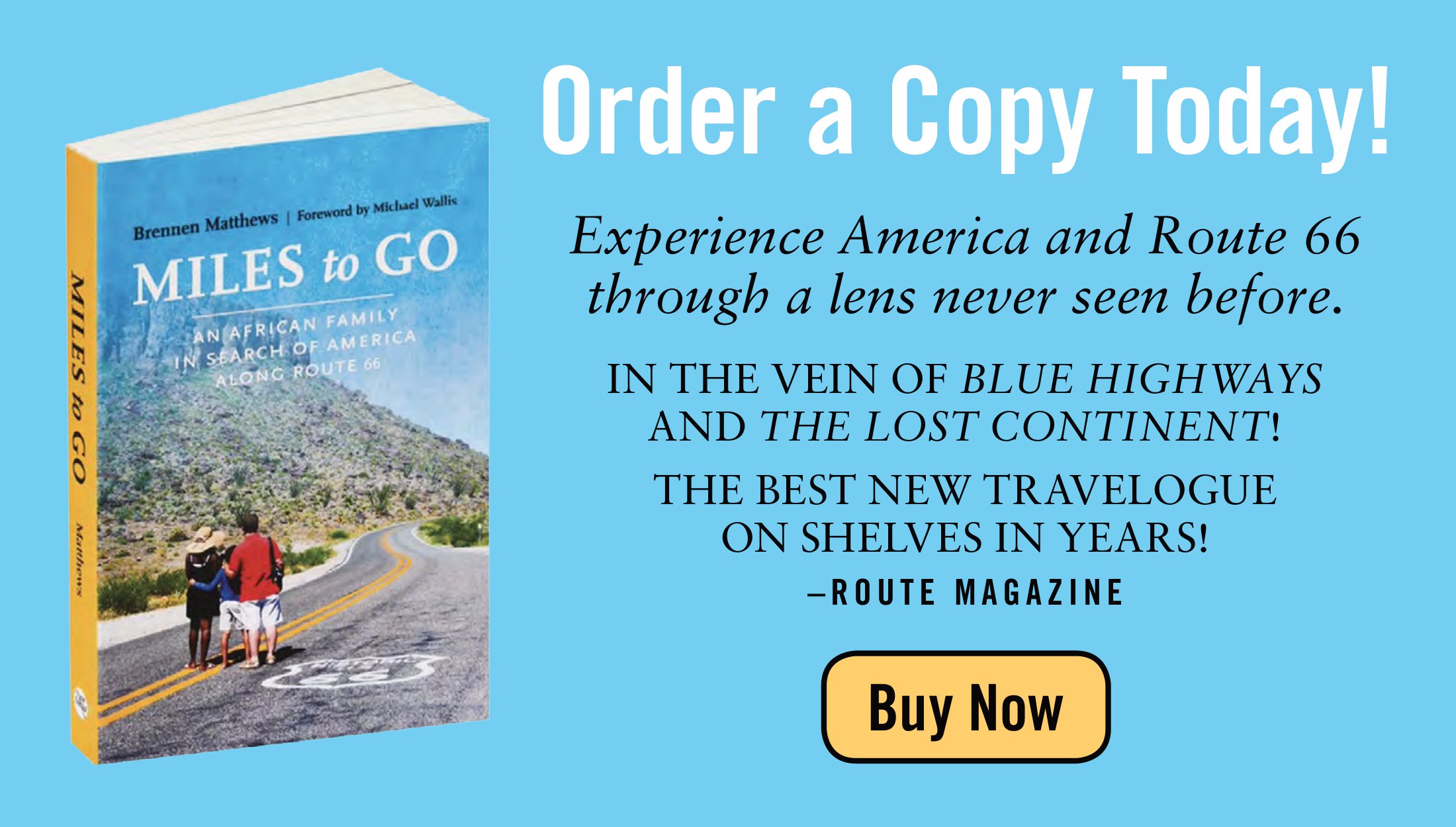You went to Amherst College and majored in Political Science. However, your life took a very different turn when you took an acting class and decided to pursue a more artistic direction. What made you decide to take an acting class?
The interest for me actually began before college. My mother would take me to the theater as a kid from a very early age. She would take me to practically every touring show that came through Washington. Musicals, straight plays everything from The Wiz to Bubbling Brown Sugar to Annie to Give ‘em Hell Harry! which was a one man show about Harry Truman starring James Whitmore. And those evenings at the theater, usually, if I recall, were for some reason, in the middle of the school week. But those evenings just really left me entranced. I was enthralled by the theater, and I was drawn into the magic of it. So, it planted a seed at a very early age, that for whatever reason, I was afraid to water. I didn't do anything in high school.
Anyway, upon going to college, I hadn't really given much thought to it until a friend asked me to come to a production that he was going to be a part of at the end of the semester, the end of this acting class that he had taken, and I went to that show. I looked at him and I said, “Well, I can do that at least.” So, the next semester, in my junior year, I took that same class. And I kind of knew from the first day of the class that I was going to be doing that more and perhaps for quite a while.
You graduated, though, with a political science degree.
I did graduate with a political science degree and then I went back to Washington, went back home. My first job was at a children's theater. I would do children's theater, touring local elementary schools with a show about American history through folk tales. I would do that in the morning, very early in the morning, and then in the evening I would wait tables. Later that fall I got a small part in All's Well That Ends Well at the Folger Shakespeare Theater. Then later, I think early winter, I got my first real role in a play called Le Blancs at Arena Stage in Washington, D.C.
You were really focused on stage and theater, even winning several Tony awards for your role as Norman "Belize" Arriaga in Angels in America. At that time, did you have ambitions for film or TV?
Yeah, I didn't want to be limited to anything, but for me, all the great actors had begun in the theater. All of the actors that I admired were theater actors, and it seemed to me the only way to know what this thing is and to practice it was to kind of, you know, dig it out of the floors of a stage. Film acting is kind of stunt work, you know? You'll shoot a scene and there's rarely a scene that's more than five minutes long. So, it doesn't take a good deal of narrative, command or stamina or skill in terms of holding a story together with a character. It doesn't take much. But when you're on stage you have greater responsibility and it kind of builds those muscles in a way that film doesn't. For me the work began and was necessary to begin in the theater.
Then you got your first feature film Basquiat (1996). At this point you obviously had an agent who helped you land the role?
But when I did Basquiat, I had no agent!
I had parted ways with my agent midway through Angels in America over a strange decision that they'd made about a film role that I was up for. It was Devil in a Blue Dress. Ultimately, Don Cheadle played that role, but I had read with Denzel Washington for it, and I was to have gone out to Los Angeles to read with them one more time. After my third audition, I was in the midst of doing the play. So, I was waiting for the itinerary and to travel out and go and read with Denzel again. I called my agent and said, “Hey, what's the flight information?”, and they said, “Oh, the producers of Angels said they wouldn't let you out for the two or three weeks to do the role, so we passed.” And I said, “You did what!” I called the casting director right away and she said, “Well, they said that you weren't available, so the directors found this wonderful actor.” That was Don. So, I got rid of my agent after that. Later, I won the Tony for Angels in America. I didn't have an agent, but I tried to get an agent. I met with, I think, four different agencies. This was after I won the Tony, and none would have me. So, I said, well, scr*w them, and just carried on on my own. I wasn't happy about it, but that is how things go at times.
Anyway, a friend of mine who was a producer and had worked a lot on Abel Ferrara's films and others… after about a year and a half of doing Angels in America on Broadway, that very day that I put in my letter of resignation, I got home to my antique answering machine and there was a message from my friend saying that he was helping the casting folks find someone to play Jean-Michel Basquiat in a film about his life. I heard that message and I knew that that was the next role that I was going to play. So, I, through various means, ended up getting that role, still without an agent.
You have these two interesting genres that you’ve done a few times; you’ve done these biopics like Basquiat and Muddy Waters (Cadillac Records) and then you’ve done some major franchises like Bond, Hunger Games, Batman etc. When you are making decisions on how you're going to portray either of those types of roles, do you approach them differently?
Yes and no. I go to as much source material as I can. So with a biographical figure, that source material is that person's life and work. With the fictional character for instance, with Batman, there's 80 years of history from the comics and the evolution of that character to consider. I try to find useful information where it exists. Often, it's simply the script itself. But I try to find a lot of helpful information, no matter what the role is, that I can use to build the character. There are deeper wells of information than others for some, but I use what I can.
Portraying a real person, people knew this person, versus joining a much beloved franchise, do you feel nervous or more pressure with either genre?
There's a kind of equal expectation… they're different, but equally intense expectations. Gosh, I mean with Batman, the expectations were through the roof, maybe greater than any other film that I'd been a part of. With Basquiat, for example, the expectations were more internal for me, because he wasn't widely known at that time outside of art circles. So, I felt in some ways, like a caretaker of this part of his story and kind of a gatekeeper for the audience. I felt like a gatekeeper to this introduction to his life. There's always something exerting itself on the process and that's good. That generally means that you're involved in things that have some kind of significance and are relevant. I've tried in my career to work on projects like that.
You and I first worked together when you had just joined HBO’s Boardwalk Empire, on season four, and I remember you saying to me, at that time, that you thought that it was the best writing that you had worked with up to that point in your career.
Well, it was the best of the best. I mean, Angels in America is at the top of Everest for me in terms of my career. There are other things that are up there near the summit. Wes Anderson’s French Dispatch was just incredibly beautiful music to my ears when I read it. I've been fortunate. That's what I'm drawn to. I'm drawn first and foremost to the word on the page, but Boardwalk was delicious. Absolutely delicious writing. I had worked with one of the chief writers on that show, Howard Korder, up at Yale Repertory Theatre on one of his plays, Search and Destroy, so I was familiar with Howard, but the stuff that they were feeding, I just gobbled it up. I just swallowed it whole. It was just so fun to play. Particularly because (Valentine) Narcisse was a character for whom words were weapons, and that's always useful.
Did you have to audition for that role, or did they approach you for it?
They filmed in Brooklyn, mostly down at Steiner Studios, and I live in Fort Greene which is just up the hill. I could roll out of bed and make my way, literally tumble down the hill onto the set. They said they were curious if I wanted to be a part of the show and invited me down to meet with Terry Winter. And that was it. I've been fortunate enough to not have to audition. I can't remember the last time that I’ve auditioned. It's been many, many years. I'm not as young as I was when I moved to New York in 1988, so I'm glad to be done with that part of the business. There are certain perks that come with longevity.
Had you watched the first three seasons of Boardwalk? Were you already a fan of the show?
My kids get on me from time to time saying that I need to make myself more current and educate myself on pop culture, but I don't. (Laughs) So I hadn't watched the show. I'd heard about it. I'd seen bits, it looked intriguing, but then I watched it and was really drawn into it. I thought it was immersive and warm in its coldness in this world, which was pretty dangerous, but nonetheless there was just such a warmth to that storytelling, you know. The history wrapped itself around you, and it was beautifully shot and beautifully performed and written. I just dove in after that.
HBO first had The Sopranos and that, of course, dealt with modern day mobsters and gangsters and crime. And when that finished about two years later, they came up with Boardwalk Empire, 1930s prohibition gangsters, and that had a great run. America seems to love this story of gangsters and underground criminals. It fascinates all of us very much. Any thoughts on why?
I think it's beyond America. I think that there's something inside the human soul that's intrigued by this stuff. I mean, it goes back to the earliest fables. There's good and evil and somewhere in between. There's something titillating about the more shadowy side. There’s just something very curious about transgression and that stuff inside the human heart. We're a peculiar species and it has made for great entertainment in some ways.
I remember you told me that you were a bit trepidatious about joining that cast initially. They were already well established on a hit show. Were there any cast members in particular that were really friendly and welcoming?

Everyone. Steve Buscemi was obviously at the top of the masthead on that show. Steve is an old school, New York actor, and I think he set the tone. But Steve is a super gracious, super humble guy in the best way. That was the atmosphere. Michael K. Williams, unfortunately the late Michael K., again a New York actor, a guy who really just shows up and goes to work. Michael was a large character in many ways, but no ego involved.
It was just a matter of going to work. Those are the best sets, no ego, no bullsh*t allowed. No ***holes allowed. That's why Boardwalk was so incredibly welcoming. That said, they'd already had great success with the series. It was supremely well done. I didn't want to be the one to step into the fourth quarter and kind of fumble the ball and screw it all up, certainly. I was a bit nervous about that, but at the same time, you come in going, ‘hey, they've laid out a great situation here.’ At the same time, I could ride a bit on the good work that had been done. So that was helpful to me as well. I was thankful to be a part of it. In fact, I miss that show, I miss that character from time to time because he was just such a wonderfully, perfect mess. I enjoy playing these arrogant characters and showing them to be as hollow as they are. I enjoy it as well. I’ve heard people say, “I really hated that character!” And that was my intent from the start, to have him be almost impossible to like. He was just absolutely despicable.
And then to show your versatility, you go from that era to Westworld, a futuristic show, with a throwback to the cowboy era. What drew you to do Westworld?
Well, the construct that had been created around technology, I thought, would lend itself to a lot of possibility. I thought that the show could go anywhere. Knowing the nature of the technology that we were centered on, when I read the pilot, I just found the writing to be exquisite, particularly the structure, the architecture of the writing and the ways in which it folded back in on itself. I could tell that it was dealing with something that was really special and it was clear from that first script that some wonderfully dynamic world or worlds were being created by Jonah Nolan and Lisa Joy.

We shot on 35 millimeter, but just driving through the day, we would have incredibly long days. First season, I think we probably averaged 16-17 hours a day.
I remember, maybe in the second season, we shot 20 hours one time. I don't even know how that's legally possible, but because you're working in that environment you really don't have a lot of time for wasted energy.
There's an efficiency that you learn in working on film that has served me very well since. Then, of course, the subject matter was something clearly of interest. It was clear eight years ago that this was going to become increasingly relevant, in time. And so, it has. The show hit on themes that were spot on in terms of two stories. There's the technology, and then there's the hand that yields the technology. The technology has these possibilities that very few of us understand, me not being one of them, but what I do understand is the corruption of individuals and the ways in which this technology has been used to create wealth or to redistribute wealth toward the pockets of a few at the base of the many. I think the show, in some ways, is a documentary of the times, and we're seeing that more and more every day.
And now you have again, another very different project coming up with Wes Anderson’s new film, Asteroid City, which comes out on June 23rd. Most of your characters tend to be very intelligent, but also very serious and respectable characters. But it looks like this film is going to show off your comedic side as well!
Well, I hope so. (Laughs) I mean, it's a bit tongue in cheek, this stuff, or certainly what Wes asked me to do. There's always wonderful irony about Wes's films and his manner of storytelling that I absolutely love. I get him. That's not to say that I always fully understand the scope of his vision because it's so specific, so intricate, and it's so detailed inside of his mind. But I get his sensibilities (and) I appreciate them. I like them quite a bit. There's something mysterious about this film, and even a little bit mystical. I find it's a great, wonderful ride.
You have over 80 projects under your belt now. Do you have one project that stands out to you, that you're most proud of?
I'm proud of a lot of things that I've done. I'm grateful to be able to say, but yeah, Angels in America is definitely the center of the map for me. That's how I get my bearings. I understand what is good, worthwhile and useful, relative to it. I was kind of blessed and cursed at the start to be a part of something so significant; it spoiled me to the idea that we could work in that way and maybe we could do that every time. I've found out that's a special piece. You know, it's more than being proud of, I'm grateful to have had that experience. Not only as an actor, as a creative person, but as a human and as a citizen.

